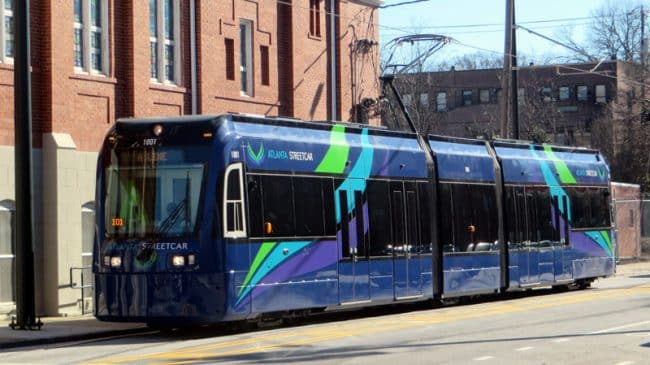Today begins a weeklong series of blogs discussing failed federal transportation policy using the Atlanta Streetcar, possibly the worse U.S. transportation ever constructed, as a vehicle. Today’s post provides an overview of the Streetcar’s current problems, including the possibility of being shutdown if the city of Atlanta does not resolve more than 60 outstanding problems.
Future posts will look at the history of the troubled project, the federal appropriations strategy that largely funded the project, the strategy of non-transportation projects receiving transportation funding, and the chances for reform.
To address the more than 60 unresolved problems with the streetcar, the city of Atlanta has sent fixes for 41 problems to the Georgia Department of Transportation. City officials asked for a four-week extension to fix the remaining 19 concerns. GDOT indicated that it will take at least 10 days to review the 2,500 pages of document that the city sent. Perhaps GDOT will give the city an extension, but given that the problems have been ongoing since the system opened in December 2014, shutting the system down seems the better course of action.
What exactly is the city of Atlanta doing wrong? It would be quicker to list what it’s doing right. The Georgia DOT report identified poor maintenance procedures, inadequate staffing, a failure to properly investigate accidents, a failure to provide timely, substantive and compliant responses to the department and to the Federal Transit Administration.
The problem is that the city of Atlanta is not an experienced transit operator, and evidently is incapable of operating streetcar service. The Metropolitan Atlanta Regional Transportation Authority (MARTA) operates rail and bus service in the city of Atlanta, DeKalb County and Fulton County. (Other counties contract out their bus service operations). MARTA, which has operated transit for 37 years, is not without its problems. But the agency has made excellent strides under General Manager Keith Parker and has the professional expertise necessary to operate rail transit, which is not an easy task.
And there are many, many more problems with the streetcar. Ridership is 60% less than what was projected. Since the streetcar began charging earlier this year, fare evasion is about 50%. This means that half of the customers taking the streetcar are not paying for it. The economic development projections have failed to materialize, with most of the growth in the corridor resulting from businesses that had planned to locate along the street before the route was announced and others saying that the streetcar had no affect on where they located. Finally, the system has numerous safety issues and a history of crashing into parking cars.
How did the city of Atlanta get into this mess? Details tomorrow.

